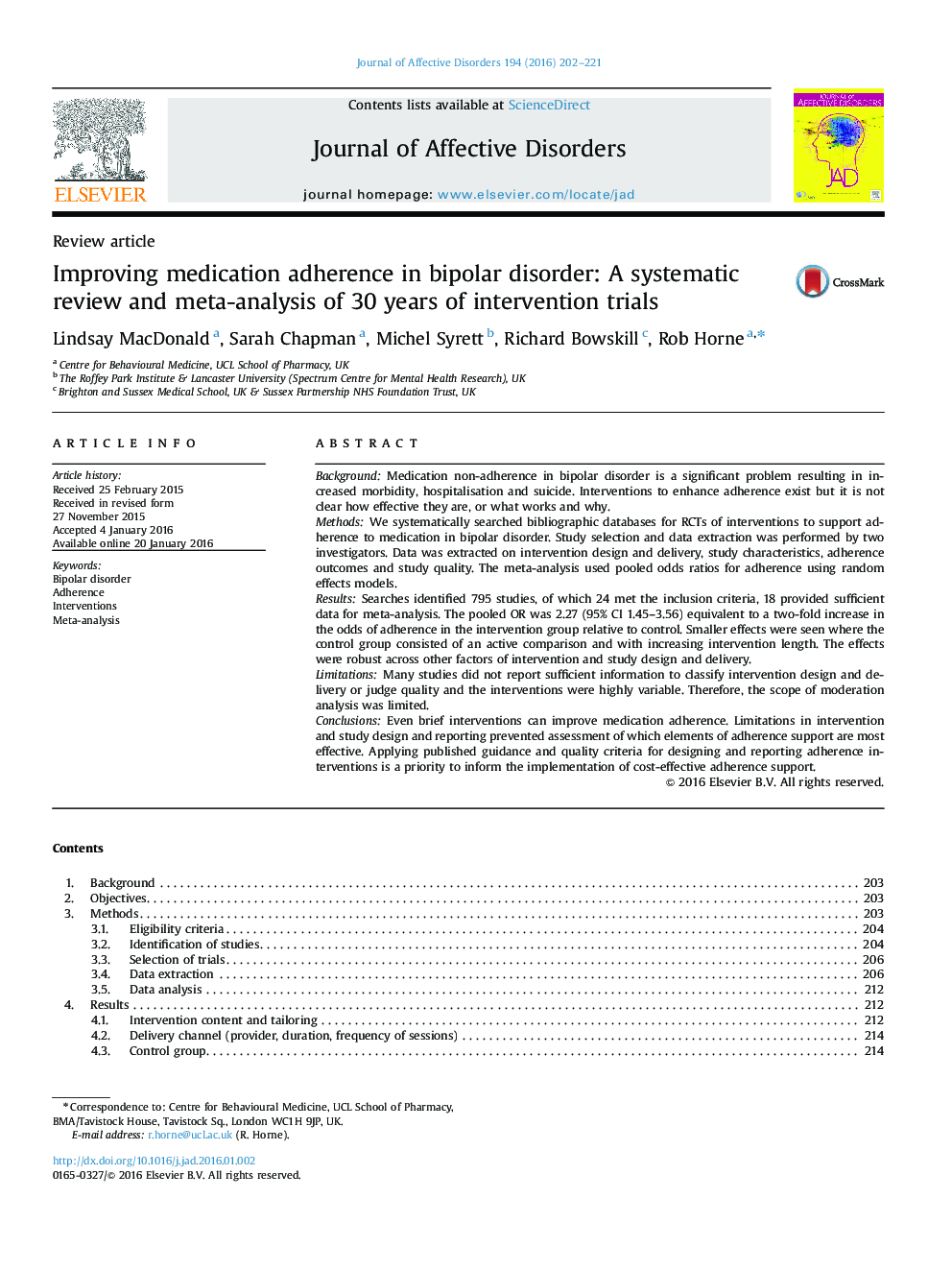| Article ID | Journal | Published Year | Pages | File Type |
|---|---|---|---|---|
| 4185875 | Journal of Affective Disorders | 2016 | 20 Pages |
•Interventions in bipolar disorder can produce durable increases in adherence.•Briefer interventions were more effective than long programmes.•Interventions were often poorly reported limiting moderation analysis.•Study quality varied and it was often not possible to judge potential risks of bias.
BackgroundMedication non-adherence in bipolar disorder is a significant problem resulting in increased morbidity, hospitalisation and suicide. Interventions to enhance adherence exist but it is not clear how effective they are, or what works and why.MethodsWe systematically searched bibliographic databases for RCTs of interventions to support adherence to medication in bipolar disorder. Study selection and data extraction was performed by two investigators. Data was extracted on intervention design and delivery, study characteristics, adherence outcomes and study quality. The meta-analysis used pooled odds ratios for adherence using random effects models.ResultsSearches identified 795 studies, of which 24 met the inclusion criteria, 18 provided sufficient data for meta-analysis. The pooled OR was 2.27 (95% CI 1.45–3.56) equivalent to a two-fold increase in the odds of adherence in the intervention group relative to control. Smaller effects were seen where the control group consisted of an active comparison and with increasing intervention length. The effects were robust across other factors of intervention and study design and delivery.LimitationsMany studies did not report sufficient information to classify intervention design and delivery or judge quality and the interventions were highly variable. Therefore, the scope of moderation analysis was limited.ConclusionsEven brief interventions can improve medication adherence. Limitations in intervention and study design and reporting prevented assessment of which elements of adherence support are most effective. Applying published guidance and quality criteria for designing and reporting adherence interventions is a priority to inform the implementation of cost-effective adherence support.
